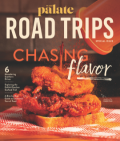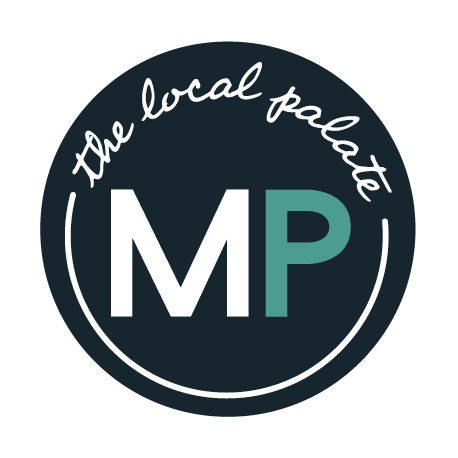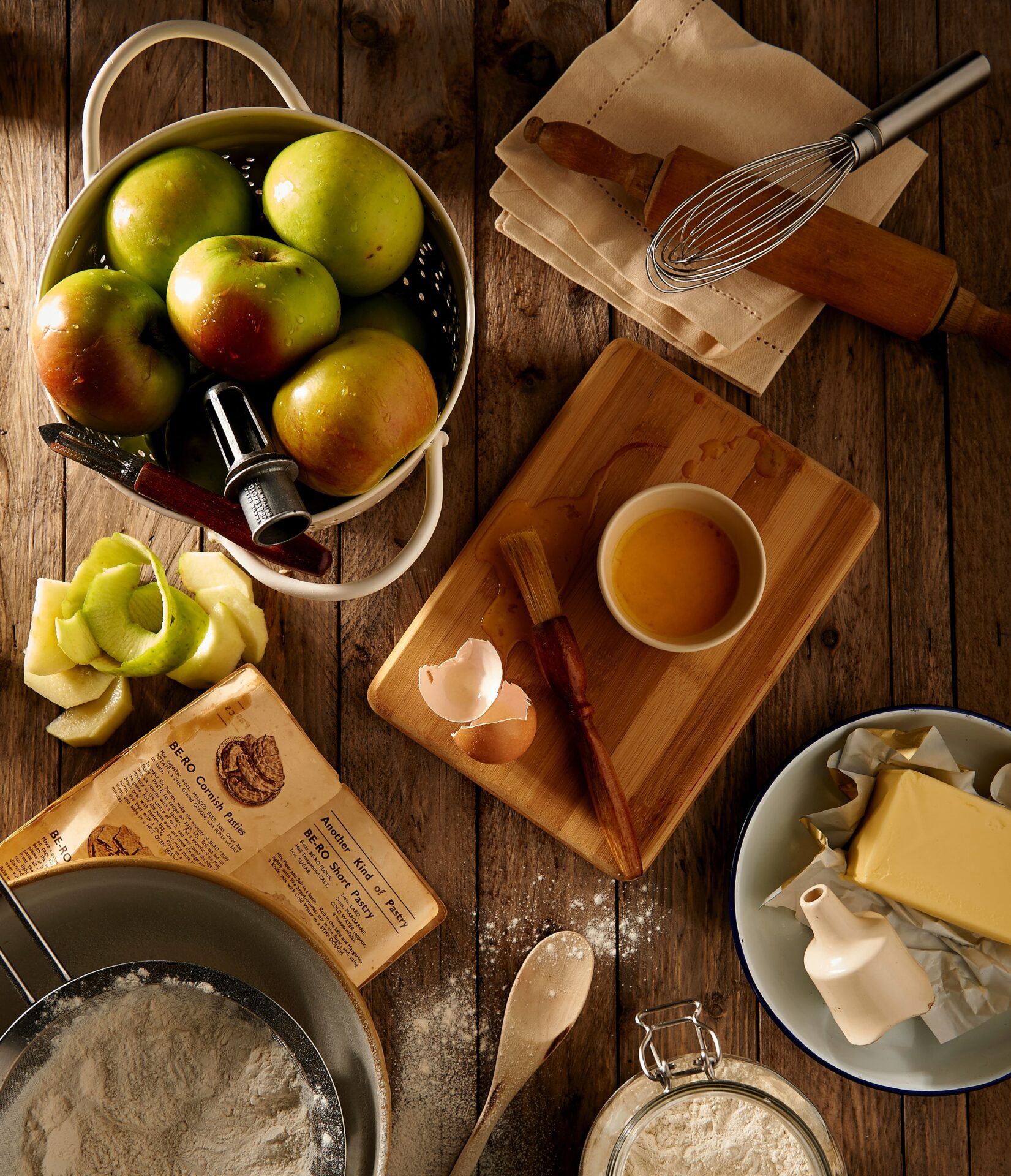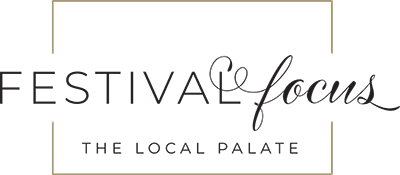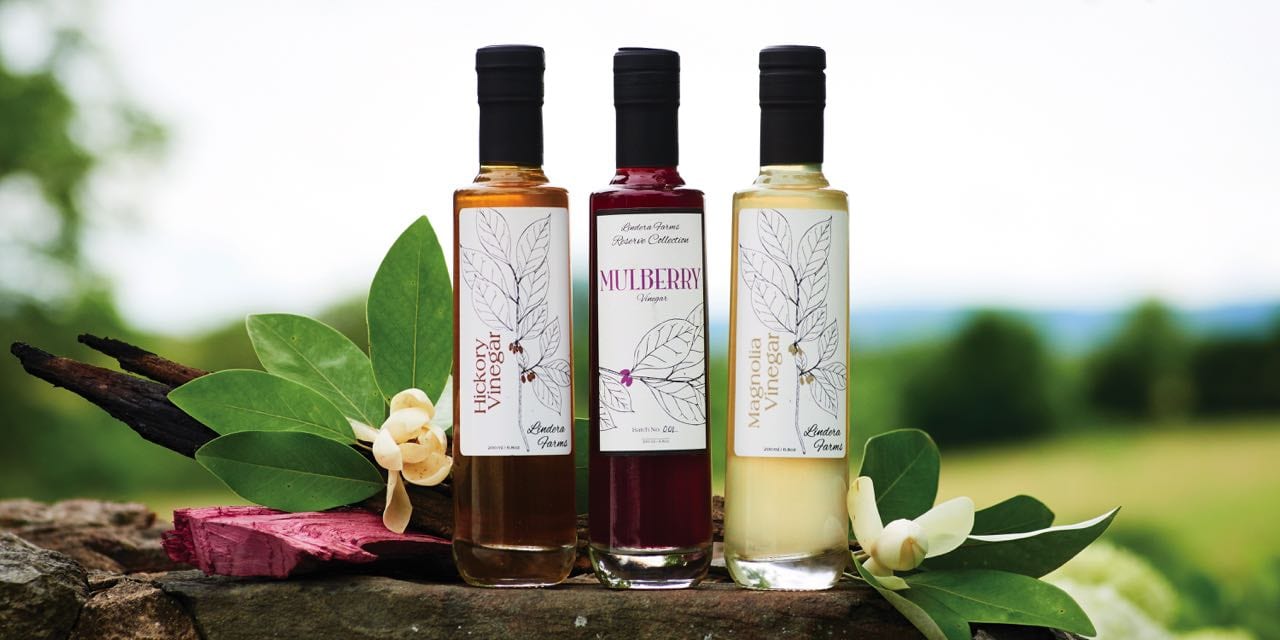Found and Fermented
Daniel Liberson stands in front of a barn. Mopping the sweat from his forehead, he jokes about the temperature nearing 100 degrees as I step onto the gravel drive, but the air feels quite pleasant, at least for a few minutes with the kind of pure, clean breeze you only feel when surrounded by farmland.
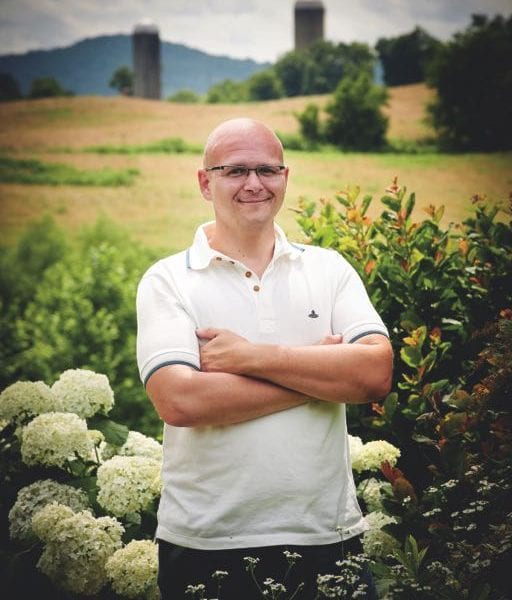
This is the home of Lindera Farms, a one-man artisanal vinegar operation with a devoted following of chefs. The 225-acre property in Marshall, Virginia, is fertile ground for Liberson to forage ingredients. On it sits a cozy barn in which science and time transform his findings into something remarkable.
The influence of great chefs on Liberson’s craft is apparent. After years on the line, working at some of the best fine dining spots on the East Coast, Liberson distilled his training and education into one deceptively simple product. His is truly a chef’s vinegar fermented from unique ingredients that capture the imagination—ingredients like pawpaw, violets, and cherry blossoms.
Claire, a Llewellin Setter, bounds ahead of us as we begin our tour. We’ve only traveled a few feet when Liberson stops imploring me to smell an aromatic white flower that he’s been using—sweet bay magnolia.
“It isn’t something that people have familiarity with in the direct sense,” he says, “but in terms of the flavor profile, it’s so similar to a bay leaf that it’s recognizable in that way.” A smaller version of the more common Southern magnolia, sweet bay boasts an intoxicating floral scent and dark green leaves. Liberson picks one and crushes it, releasing a perfume of oils that he brings toward our nostrils in his cupped palms.
“I’m not a botanist, I’m just a nerd,” he jokes, launching into an explanation of the way plants use their essential oils as a kind of insect repellent. Liberson establishes a brisk pace of conversation as we move through the paths that twist along the woods and fields. Climbing after him as he points to edible flowers and wild black raspberries—a good showing this year, apparently—I’m impressed by the beauty and bounty of the land and how it acts as a kind of laboratory for whatever strikes Liberson’s fancy.
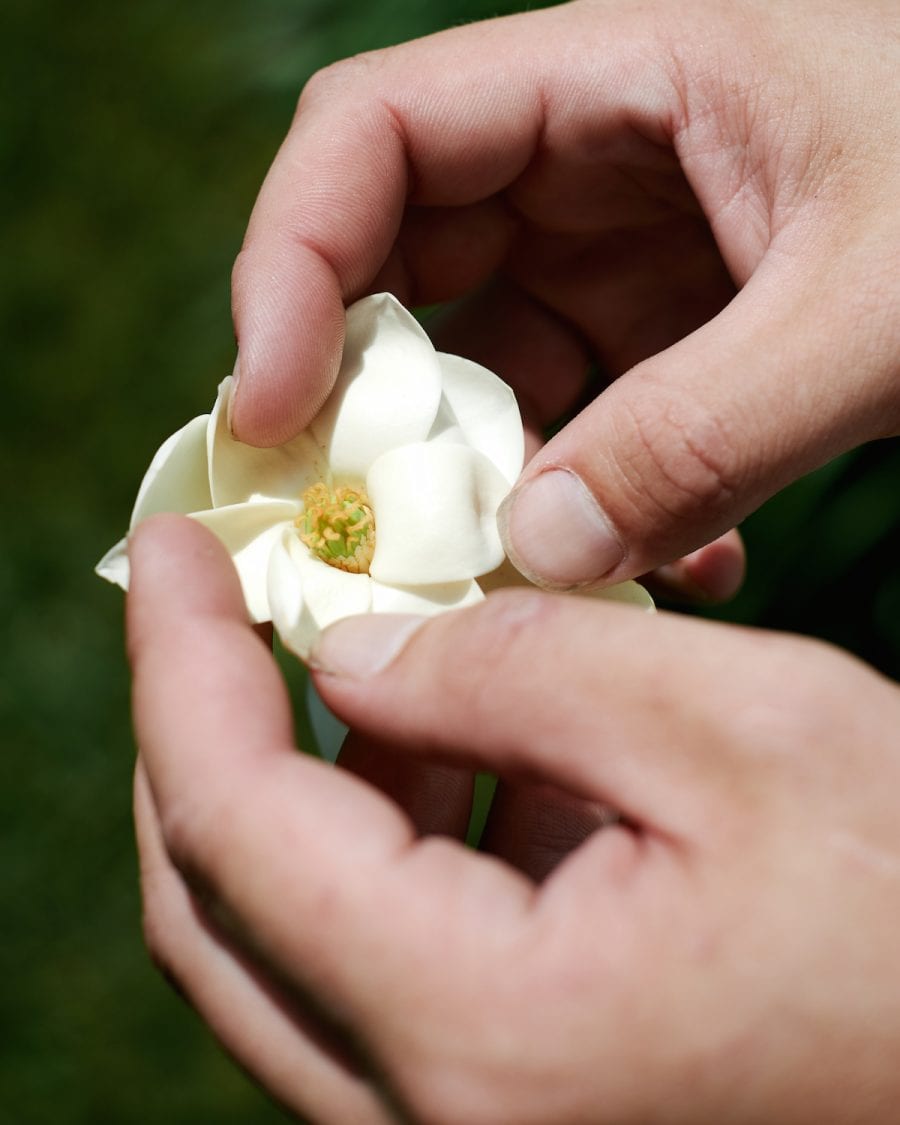
Back in the basement of the barn, Liberson shows off his operation, surprisingly humble accommodations for a business that has produced vinegar for chefs such as Dominique Crenn, Jose Andres, and Sean Brock. He’s opinionated and meticulous when it comes to his products, candidly dismissing flavored vinegars that simply add on to distilled white vinegar as “trash,” noting that, “vinegar, on an industrial level, is typically made in a matter of hours or days via an acetator, a large-scale machine that rotates, heats, and oxygenates an alcohol into a vinegar.” This results in an inferior product because, as Liberson explains, “generally the inputs are extremely low quality; there’s little effort put into the aging process, if any, and the output is extremely caustic and unpleasant both in terms of flavor and aroma.”
Liberson’s method requires first using the star ingredient to make a strong wine, which slowly ages and ferments to extract as much of the essential flavor as possible; it requires patience and a well-trained palate to achieve the depth of flavor that chefs expect. He likens his method to that of a saucier—constantly tasting, changing, adapting. The result is a complex, nuanced vinegar with subtle acidity that chefs appreciate for its depth and ability to enhance rather than mask other flavors.
Because each unique ingredient ferments at its own pace, it can take anywhere from a couple of months to a year to complete a single batch of vinegar. With over seventy varieties in his repertoire, Liberson says variation is the name of the game. For something like elderflower, Liberson first makes a mead with honey and elderflower blooms that have either been dried, made into a tincture, or preserved in last year’s vinegar—sometimes all three. Then the sugars in the mead begin the fermentation process, and it’s off to the races, slow and plodding though they may be.
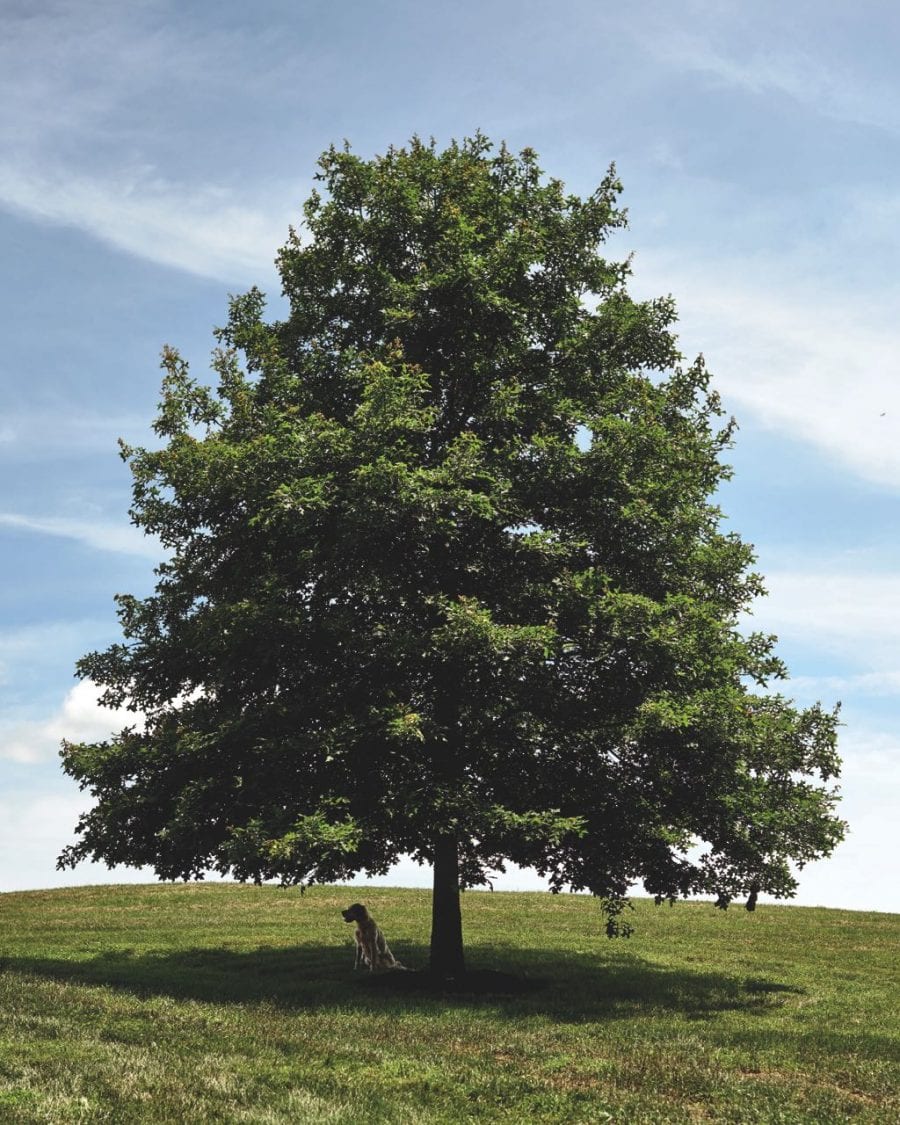
Most days, Liberson is alone with his thoughts, a podcast humming in the background as he forages and ferments. He’s known more hectic work and a lot of it, having spent over a decade in restaurants working under chefs John Shields and Bryan Voltaggio.
Liberson takes his cues from the culinary world, which has inspired his hyper-local approach. “There’s something you pick up as a chef. If a supplier doesn’t have something you really want, you can’t shut down the restaurant,” he says. “My supply chain has variables that normally you would want to fight as a small business. For me though, it’s an asset. It gives me an appreciation that what I’m doing is tied to area.”
By its very nature, Liberson’s business is ephemeral, and adaptation is essential. “Because so many of the ingredients I use are foraged, I don’t have crop failure, say, in the sense that a farmer does,” Liberson explains. “For me, it’s more adaptive. If I have god-awful weather and it kills, say, my Virginia Persimmons, I just [don’t] have it.” The product is as rooted in its terroir as any wine, and bringing in Fuyu Persimmons from California just wouldn’t be the same. That’s when Liberson has to hold fast, resisting the temptation to outsource even if it compromises a sale. “People ask when I’m going to make persimmon vinegar again, and all I can say is, ‘You’ll have to ask the trees on my property.’”
share
trending content
-
The Ultimate Maryland Dining Guide | Listen
by TLP Editors -
The Gimlet: Mixing the Ideal Chill Out
by Emily Havener -
Exploring the Gullah Geechee Trail | Listen
-
Spectacular Summer Moments Await in Boone, North Carolina
by TLP's Partners -
7 Cookbooks All About Barbecue | Listen
More From In the Field
-
Kohlrabi: Pretty Ugly
-
Meet the Newest James Beard Award Winners from the South | Listen
-
OKO Brings Filipino Soul to East Austin | Listen
-
The Local Palate’s Guide to Chattanooga | Video
-
Find Your Top Dry Bar in the South | Listen
